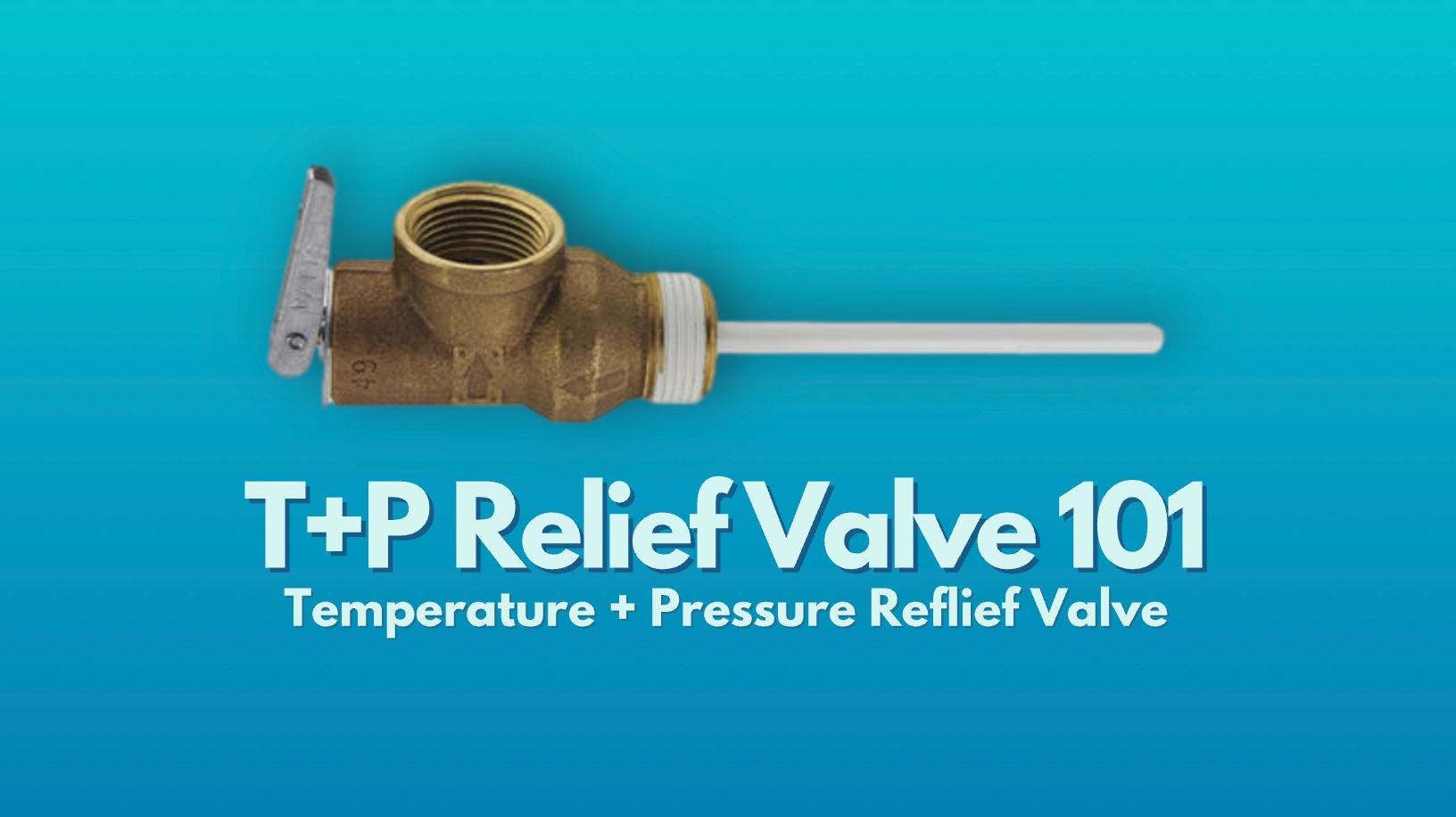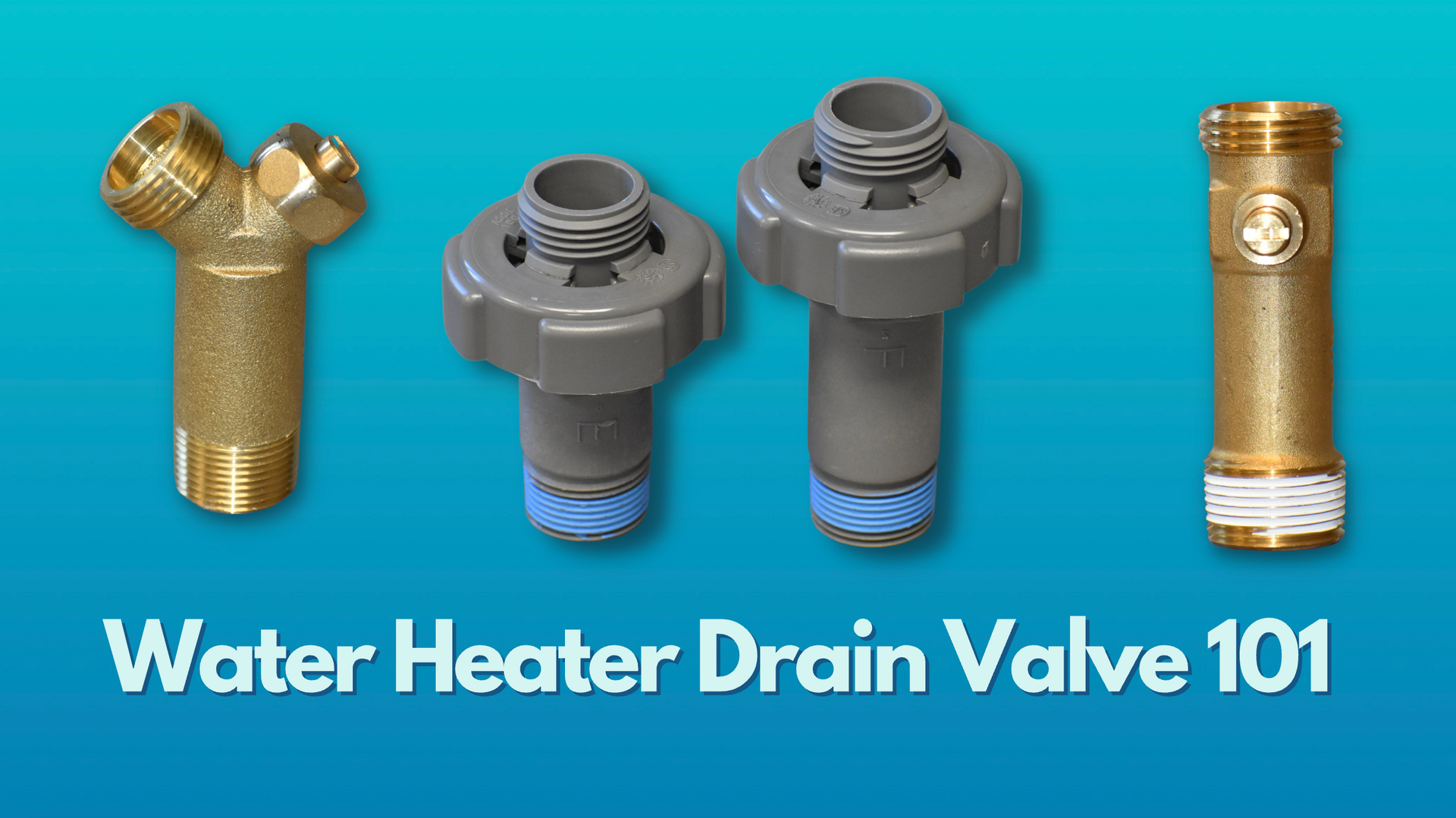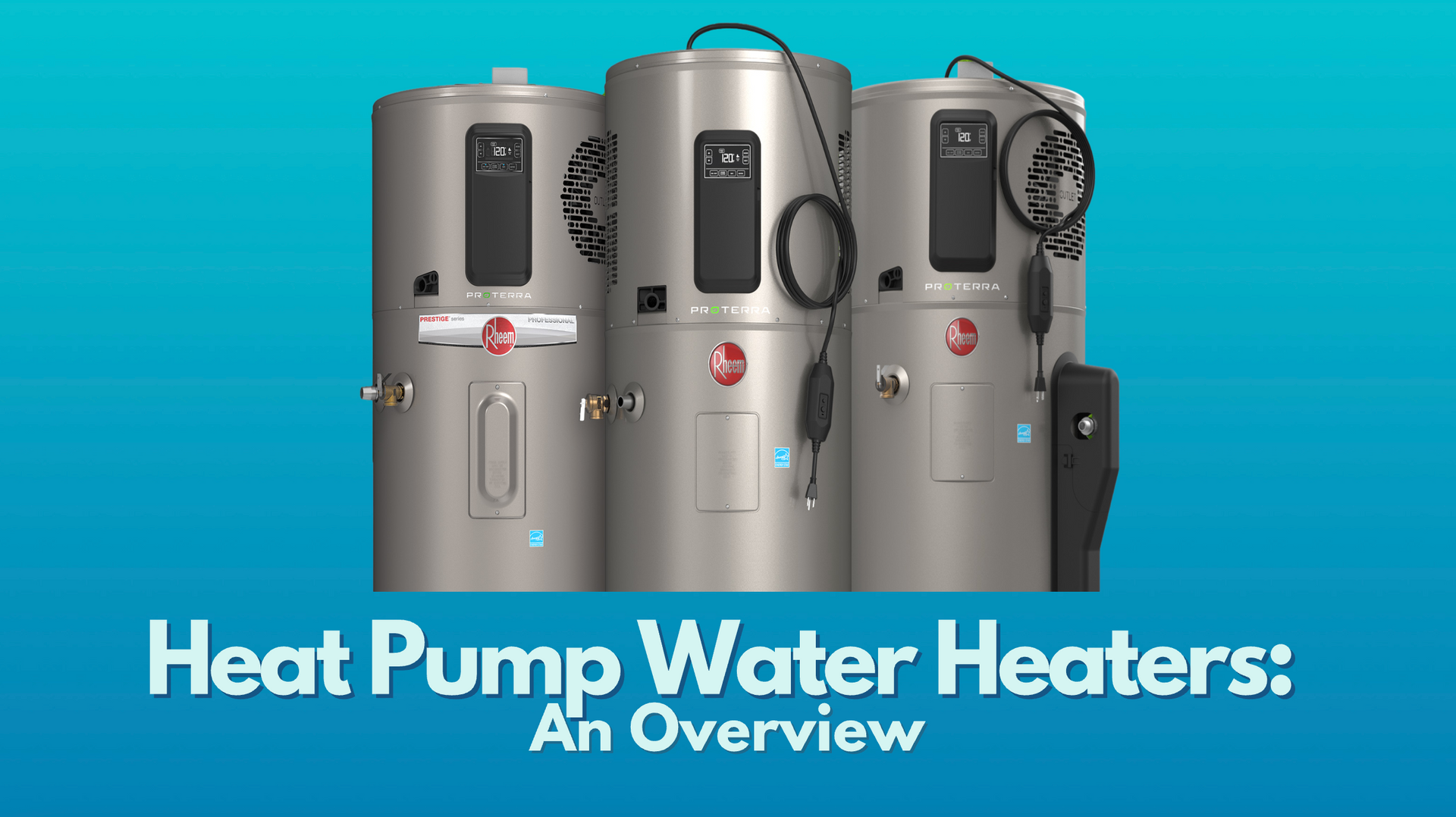Water Heater Explosions: Causes and Prevention
Last Updated: June 14, 2023
How to Identify and Prevent Water Heater Explosions
***DISCLAIMER: PLEASE REFER TO YOUR MANUFACTURER’S INSTALLATION MANUAL FOR INFORMATION REGARDING YOUR SPECIFIC MODEL. IF YOU ARE ATTEMPTING TO SERVICE YOUR OWN HEATER, PLEASE DO SO WITH CAUTION. THIS ARTICLE IS MEANT TO PROVIDE AN INFORMATIVE + EDUCATIONAL SUMMARY AND DOES NOT SUPERSEDE OFFICIAL ONSITE DIAGNOSIS/REPAIRS OR INFORMATION FROM YOUR UNIT'S MANUFACTURER.***
Gas water heaters operate using spark, combustion, and a fuel source. The most common fuel source for water heaters is gas which can either be natural gas or LP (liquified petroleum). Since these fuel sources are flammable, they also pose the risk of explosion, although this only occurs in rare cases.
Water heater explosions are far less common today than the early 1900s thanks to increased knowledge and the implementation of advanced safety features, especially the Temperature and Pressure Relief Valve (T&P Relief Valve). In fact, when George Horne started selling temperature and relief valves, he exploded water heaters as part of his sales pitch. However, even with modern safety features, explosions still do happen on occasion, causing serious damage and/or death. According to the United States Product Safety Commission's Archived Annual Clearinghouse Data, there were 19,959 incident reports filed in 2021; of these reports, approximately 58 were directly reported in relation to water heaters, but only 4 of those cases involved water heater explosions (~0.02% of all incidents reported).
Over the past decade, however, there have been various water heater explosions across the Midwest and South. For example, one recent water heater explosion in Iowa
damaged 14 houses. Luckily, everyone in that scenario walked away relatively unscathed. That’s not always the case.
Water heater explosions are mostly a concern for storage tank water heaters - you do not have to worry if you have made the upgrade to a
tankless water heater.
What Causes Water Heater Explosions?
There are two main causes of water heater explosions: gas leak and excessive pressure levels.
Gas Leak
If you have a gas water heater, it’s important to remember that gas is highly flammable. If the gas that fuels your water heater somehow comes into contact with an open flame (which can happen due to a gas leak or poor ventilation), the unit can explode.
Luckily, many water heaters come with a water heater flammable vapor sensor that shuts the unit down if it detects dangerous levels of toxic vapors.
Most instances of water heater explosions involve gas water heaters. However, electric water heaters can explode and cause fires, too.
Excessive Pressure Levels
The process of heating water generates a lot of pressure. However, the water heater tank can only withstand so much pressure. Each tank will have a rating. If pressure levels exceed the rating, pressure escapes through the pressure relief valve. However, if the pressure relief valve doesn’t open as designed, the pressure will build up inside of the tank until it explodes.
So what causes this increase in pressure inside the tank in the first place? As we stated, the process of heating water creates pressure. The hotter the water, the more pressure is generated. When sensors become dirty or water temperatures get set too high, the pressure starts to build inside of the hot water tank.
Excessive Pressure Prevention: Thermal Expansion Tanks
Although thermal expansion tanks are not commonly associated with water heater explosion prevention, they are known for reducing excessive pressure inside water heaters, among several other benefits. Watch our YouTube video to learn more about the benefits of installing a thermal tank with your water heater.
Pressure can also build up through a process known as
water hammer.
Water hammer refers to a pressure surge created when water suddenly stops or changes direction. The change in momentum creates additional pressure. To resolve water hammer, plumbers often install water hammer arrestors.
Manufacturers rate water heaters as being able to withstand a specific amount of pressure, although they can often withstand excess pressure to some degree; this information can be found on the unit's ratings plate, installation manual, and on manufacturers' websites. Thus, if a water heater has a pressure rating of 150 psi, in reality, it can often withstand closer to 300 psi. It takes a lot to get pressure levels this high. Furthermore, the combination of pre-existing water heater safety features like the T&P valve and the installation of a thermal expansion tank will keep pressure levels balanced, even when they do build up higher than they should.
The topic of water heater explosions has also been addressed by the popularized MythBusters experiment, which demonstrated the effects of excessive pressure and how they made three different water heaters explode. It is important to note that they removed all the units' safety features prior to experimentation.
A Little About Temperature & Pressure Relief Valves…
Temperature & pressure relief valves (T&P Valves) allow excess pressure to escape when pressure levels get too high. The first water heaters didn’t have any pressure relief valve at all. Hot water heater explosions were still occurring, even after the introduction of the first pressure relief valves since the designs of those pressure relief valves didn’t account for pressure increases caused by high temperatures and the resulting steam expansion. Soon, the temperature & pressure relief valve (T&P Valve) was born.
The modern T&P Valve is essentially the same as the pressure relief valve introduced to us in the 1930s: it connects to the overflow pipe that runs down the exterior of the tank. While first designs may have connected the valve to the hot water outlet, they all connect to the overflow pipe now. Temperature & pressure relief valves consist of metal with some plastic parts and are often pre-installed on water heaters when they are manufactured.
T&P Valves at uswhpro
We stock a wide variety of T&P Relief Valves for residential and commercial water heaters, as well as the following brands: A.O. Smith, Bradford White, and Rheem.
Some of our common T&P Relief Valve stock includes:
- 100108455 | 2" Brass and Plastic NPT Relief Valve [A.O. Smith]
- 100109448 | 3/4" T&P Relief Valve [A.O. Smith]
- AP12574E-2 | 3/4" T&P Relief Valve [Rheem]
- SP8346 | 4-1/4" T&P Relief Valve [Rheem]
- 415-32920-00 | 4" Stem, 3/4" Male T&P Relief Valve [Bradford White]
Contact U.S. Water Heating Solutions
for more information on T&P Valve pricing + availability!
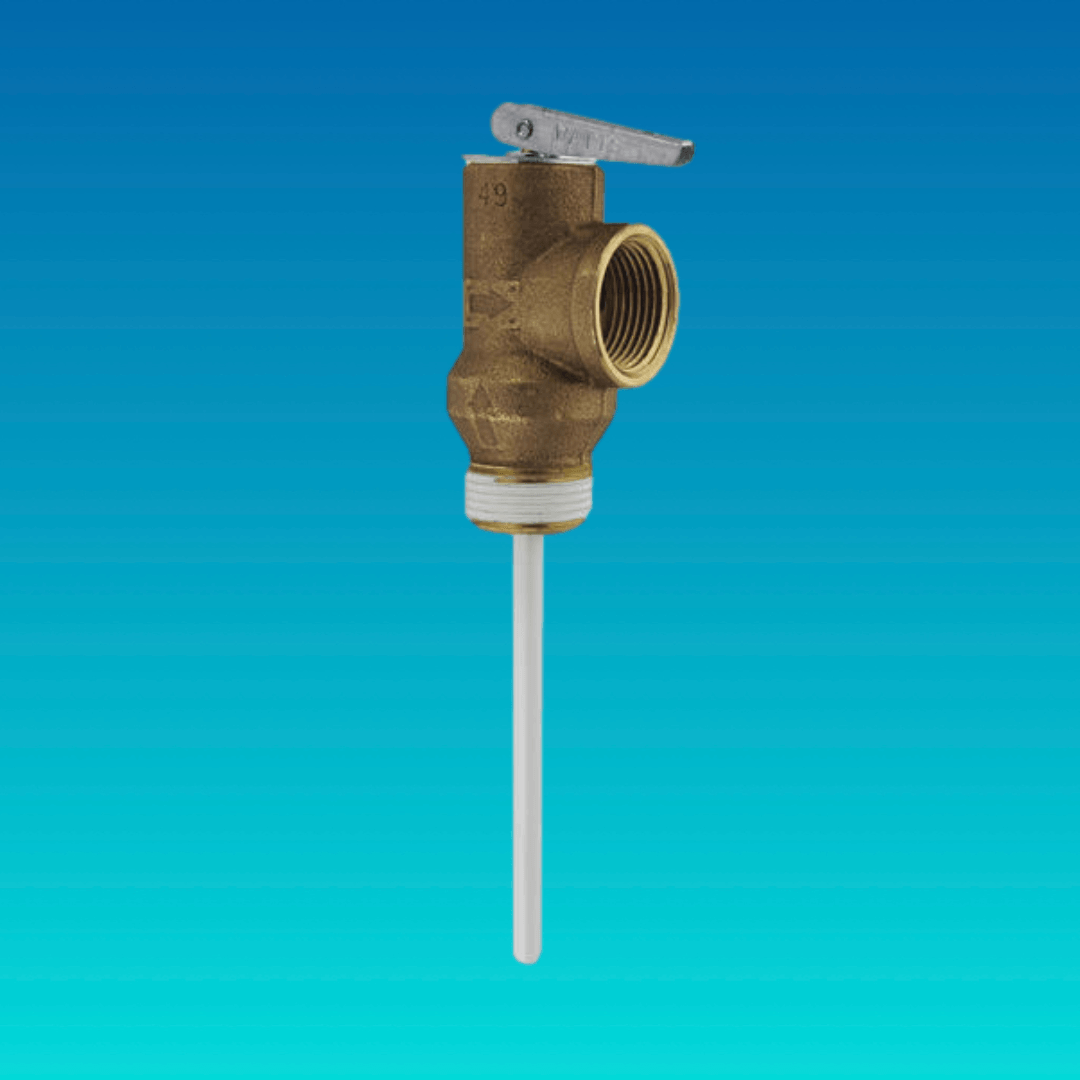
T&P Relief Valve
Signs that a Water Heater May Explode
How do you know if your water heater may soon explode? Well, there are a couple of heater explosion warning signs.
NOTE: Water heater explosions are extremely rare and the warning signs listed below may also signal other water heater issues. Be sure to have a qualified professional evaluate your specific use case and issue(s).
#1. Pressure Relief Valve Leaking/Always Open
Your pressure relief valve only opens when it needs to release pressure. If the valve constantly remains open, leaking water onto your floor from the discharge pipe, that’s a sign that pressure levels inside that tank exceed the tank’s capabilities not to mention the water damage caused by the leak.
#2. Faulty Pressure Relief Valve
We all expect the different components on our water heater to work, especially when it relates so much to safety. However, a faulty relief valve that won’t open when necessary will keep the pressure in the tank instead of allowing it to escape.
#3. Popping Noises
Popping noises indicate sediment buildup in your water heater. All water contains minerals. Hard water contains more minerals than soft water. Minerals get left behind in the tank and accumulate. The popping noise is the sound of the mineral deposits exploding inside your tank (don’t worry - these explosions are small and not a safety hazard). Sediment buildup will increase pressure as it forces components inside the tank to work harder than normal, not to mention the pressure caused by the mini explosions.
#4. Shaking
Your water heater should never shake. If you notice your water heater shaking, it’s due to the pressure inside of it. At this point, the water heater may explode at any minute. Turn off power to the water heater and get a repair or a new water heater immediately!
How to Prevent a Water Heater Explosion
You can take steps to prevent water heater explosions. Everyone should take these precautions, as they not only prevent your water heater from exploding but generally keep your water heater in the best condition possible.
Don’t Exceed 120°F
When water gets hotter, pressure levels increase. In fact, for every degree increase in water temperature, you’ll increase pressure levels by 4 psi. Therefore, it’s important to keep the water heater at the recommended temperature for residential purposes - 120°F.
In some cases, particularly commercial applications, you have no choice but to increase temperatures. In these cases, besure to use a metal t & p valve as the plastic ones tend to only be rated to about 210 degrees.
Monitor Pressure Levels
You need to monitor the pressure levels of your water heater. You should be able to do this at the control panel. Be sure to check it when the water heather is in use. You should also look up your water heater’s pressure rating.
Get Regular Maintenance
Every homeowner should get maintenance on their water heater at least once a year. Maintenance involves flushing the water heater and inspecting/cleaning the different components. Your maintenance technician will inform you if the pressure relief valve isn’t functioning as it should, preventing a problem well in advance. Furthermore, flushing the water heater will remove sediment buildup that can contribute to high pressure levels in the tank.
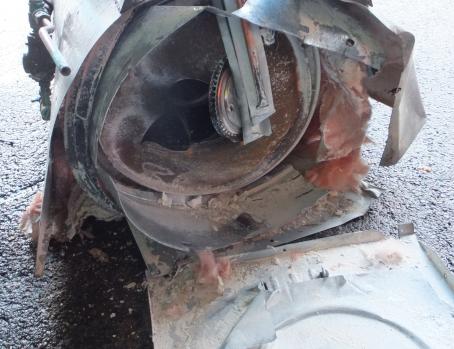
U.S. Water Heating Solutions
Don’t let yourself fall victim to a water heater explosion. Trust U.S. Water Heating Solutions to keep you safe with a wide range of water heater services, including:
- Water heater maintenance
- Water heater installation
- Water heater repair
- Commercial water heater services
- Water heater warranty services
Contact U.S. Water Heating Solutions
to schedule your service or get a quote today!
Frequently Asked Questions About Water Heater Explosions
-
What would cause a water heater to explode?
Water heaters may explode for two main reasons - gas leaks and excessive pressure levels.
-
How do you stop a water heater from exploding?
You can stop a water heater from exploding by keeping up on regular maintenance and keeping an eye on pressure levels. Furthermore, if you suspect a gas leak, stop using the water heater, evacuate the home, and call for assistance right away.
-
What happens if a hot water heater explodes?
Water heater explosions are almost always detrimental. In many cases they shoot out of the home like a rocket, leaving extreme devastation behind it. Larger water heater tanks will explode with more force than smaller tanks.
You Might Also Like
Navigation
Services
Regular Office Hours
- Mon - Fri
- -
- Sat - Sun
- Closed
Emergency Dispatch
- Mon - Sun
- Open 24 Hours
24/7/365 Service
All Rights Reserved | US Water Heating Solutions | Site Created by ABN




